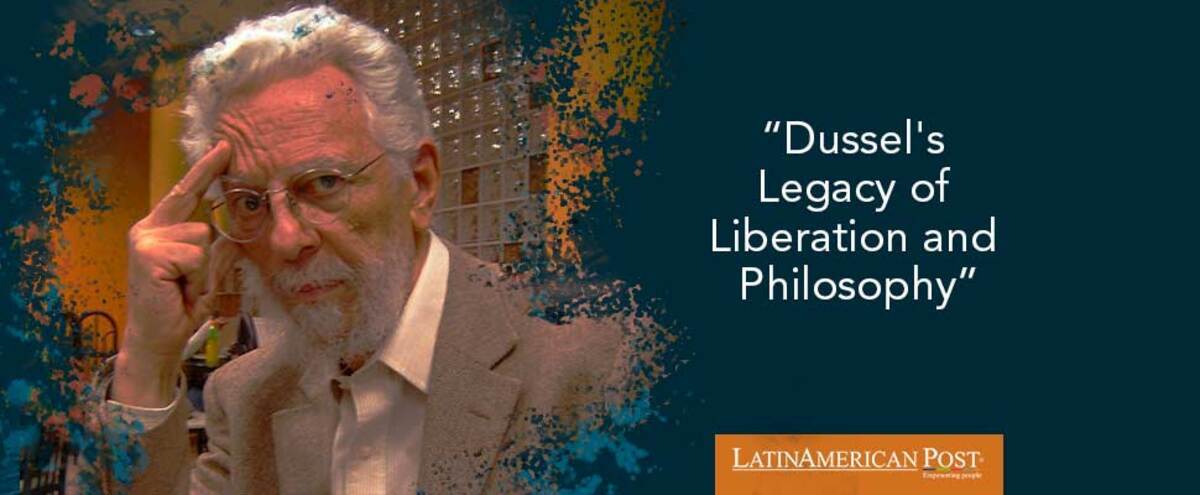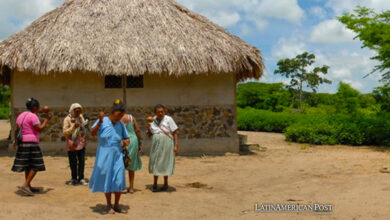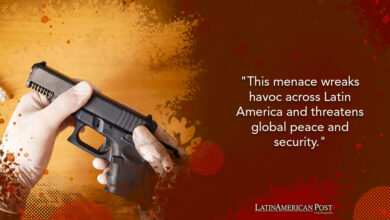Enrique Dussel, a Champion of Decolonial Thought and Liberation Philosophy
The philosophical world mourns the loss of Enrique Dussel, a critical thinker whose advocacy for a decolonial turn and Liberation Philosophy reshaped Latin American thought. Dussel (1934-2023) died in Mexico City on Sunday at 89.

Photo: Wikimedia-Ralg23 (Edit: LatamPost)
Latin American Post Staff
Escucha este artículo
Leer en español: Enrique Dussel, un defensor del pensamiento decolonial y de la filosofía de la liberación
A Beacon of Hope and Critical Thinker
Enrique Dussel, the Argentine-born philosopher who naturalized as a Mexican and whose thoughts and works transcended continental borders, leaves behind a legacy that is as profound as it is critical for developing a genuinely pluralistic global society. His demise at 89 is not just the loss of a prolific mind but also the dimming of a beacon of hope for the oppressed and marginalized communities across the world.
Dussel's philosophy of liberation offered a framework that challenged the established norms and hegemonies that have historically subjugated the 'other'—a term he would use to describe those outside the Western paradigm. His critique of modernity was not merely an academic exercise; it was a clarion call to recognize and rectify the systemic imbalances that have for centuries favored a Eurocentric worldview.
Dussel's dissection of modernity and his subsequent call for a 'transmodernity' addressed the essential need for a new epoch—one that includes all voices, especially those silenced in the past due to colonialism and imperialism. This transmodern era, as envisioned by Dussel, was not to discard the European legacy altogether but to transcend it, incorporating the diverse epistemologies and experiences of the Global South.
Unveiling Historical Wounds: Dussel's Decolonial Turn
His philosophical journey was akin to peeling back the layers of an onion, revealing the core of historical wounds inflicted by colonialism. By advocating for a decolonial turn, Dussel invited us to engage in a rigorous re-examination of history, one that acknowledges the contributions and sufferings of the colonized and utilizes this as a foundational stone for constructing new, inclusive narratives.
Perhaps one of the most compelling aspects of Dussel's work is his emphasis on the "philosophy of liberation." This concept goes beyond academic pontification, urging an active engagement with the conditions of oppression and striving toward tangible change. It is a philosophy that is lived, breathed, and mobilized—resonating deeply with the marginalized who seek not just theoretical frameworks but practical instruments for their emancipation.
In his condemnation of heliocentrism, eurocentrism, and occidentalism, Dussel did not just present a critique but offered an alternative—a philosophy that roots itself in the experiences and realities of Latin America and, by extension, the non-Western world. He was a firm believer in the idea that philosophy must not be confined to the ivory towers of academia but must be a vehicle for social change, a tool in the hands of the disenfranchised.
Empowering the Marginalized: Dussel's Narrative Reclamation
Dussel's writings illuminated the path for the "exploited and impoverished" to understand their plight not as an inevitable fate but as a consequence of historical processes that can and must be challenged. His works empower those on the fringes to reclaim their narratives and assert their agency in a world that has often rendered them voiceless.
In supporting the decolonial turn, Dussel provided the intellectual scaffolding for social movements across Latin America and the world, contributing significantly to the understanding that liberation is not just the removal of physical chains but the unshackling of minds. His philosophy is a testament to the power of thought in the service of justice, advocating for a world where the wealth of human experiences is the cornerstone of our collective advancement.
Also read: Zapatistas Announce Dissolution of "Autonomous Municipalities"
A Lasting Legacy: Dussel's Philosophical Impact
As we reflect on Dussel's contributions, it is clear that his philosophy transcends his physical presence. The seeds he planted continue to grow, inspiring countless individuals to look beyond the Eurocentric canon and explore the rich tapestry of non-Western thought.
Ultimately, Dussel's philosophy of liberation asks of us a simple yet profound commitment: to be ever-cognizant of the histories we inherit, the narratives we construct, and the futures we envision. It implores us to work tirelessly towards a world where all voices are heard, all experiences are valued, and all people are liberated—not just in theory, but in the tangible reality of our everyday lives. His departure is not an end but a rallying cry for us to continue the critical work of decolonization and strive for the liberation he so passionately championed.





